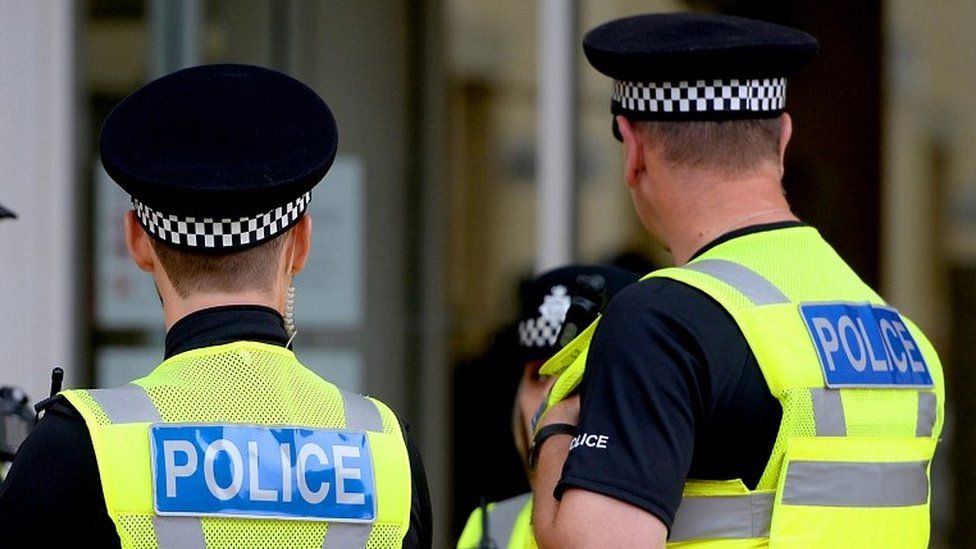Boris Johnson pledges to target drug abuse in anti-crime push

Prime Minister Boris Johnson has promised to cut crime by tackling drug misuse and using electronic tagging on more burglars after release.
The government is also proposing that every neighbourhood in England and Wales should have a named police officer for residents to contact.
Mr Johnson said his efforts to make society safer would be “unstinting”.
But the Police Federation, representing rank-and-file officers, said fighting crime needed greater investment.
And Labour accused the government of being “all talk and no action” on law and order.
Under the Beating Crime Plan, more burglars, robbers and thieves would have their location monitored with electronic tags 24 hours a day after leaving prison.
Alcohol tags – which are intended to detect from sweat if the wearer has been drinking – are to be trialled on prison leavers in Wales in an effort to reduce alcohol-related crime.
The document also says Project Adder – which targets drugs gangs, offers help to addicts and increases the use of drugs testing when arrests are made– will be expanded from five areas of England to 13.
The new areas covered will be Newcastle, Bristol, London’s Hackney and Tower Hamlets, Wakefield, Liverpool, Knowsley and Wirral.
The government argues that allocating a named officer to every neighbourhood of England and Wales will ensure persistent crime and anti-social behaviour is tackled, as they “know their area”.
Stop and search
Ministers are also removing rules introduced by former Prime Minister Theresa May which made it harder for officers to use their section 60 stop and search powers.
The powers allow officers to search people without reasonable suspicion in places where serious violence may occur.
BBC home affairs correspondent Daniel Sandford says the government believes limits on stop and search have held back efforts to tackle knife crime.
However, the easing of rules is not uncontroversial and will cause a lot of disquiet, he says.
Also as part of a trial, probation services in Wales will be able to require prisoners released on licence to wear ankle tags for up to a year to monitor the amount of alcohol in their sweat.
Probation officers will be able to impose the tags where drinking alcohol is believed to increase their likelihood of committing another crime.
Currently, courts can only require offenders serving community sentences to wear the tags for up to four months for crimes explicitly linked to alcohol.
Like the court-ordered tags, prisoners on release will not be required to wear them if they are dependent on alcohol because those offenders are often required to undergo treatment.
The plan also includes:
- A pilot scheme to test the benefit of sending an officer to every reported burglary, to be trialled in Greater Manchester
- Proposals for league tables ranking how quickly police forces answer 101 and 999 calls
- A national online platform for the public to contact police
- More officers to deal with children truanting from school
- A £17m programme to persuade young people who attend hospital with a stab wound or come into contact with police to stay away from violence
- £45m for specialist teams in schools in places with high levels of violence
Mr Johnson said: “When I first stood on the steps of Downing Street as prime minister, I promised to back the police and make people safer, because we cannot level up the country when crime hits the poorest hardest and draws the most vulnerable into violence.
“That is why my government has remained unstinting in its efforts to protect the British public and this plan delivers a fresh commitment, as we emerge from the impacts of the pandemic, to have less crime, fewer victims and a safer society.”
Source: (BBC News)

